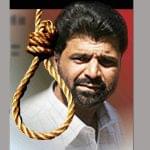Reference
Sachar Committee Report: A Report on the Social, Economic and Educational Status of the Muslim Community in India.
In March 2005, a high level committee was notified by the Prime Minister’s office for preparing a report on the “Social, Economic and Educational Status” of the Muslim community of India. The committee was to collect, consolidate, collate and analyze the report findings to identifyareas for governmental intervention to address relevant issues of social, economic and educational status of the Muslim community in the country. The committee filed its report in November 2006.
Observations and Recommendations of the Sachar Committee Report
- While there is considerable variation in the conditions of Muslims acrossstates, the community exhibits deficits and deprivation inpractically all dimensions of development.
- Mechanisms to ensure equity and equality of opportunity to bring about inclusion should besuch that diversityis achieved and at the same time the perception of discrimination is eliminated.
- Creation of a National Data Bank(NDB) where all relevant data forvarious SRCs(Socio religious categories) are maintained is recommended.
- An autonomous Assessment and Monitoring Authority (AMA) is needed to evaluate the extent of development benefits which accrue to different SRCs through various programs.
- While equity in the implementation of programs and better participation of the community in the development process would gradually eliminate the perception of discrimination, there is a need to strengthen the legal provisions to eliminate such cases.
- It is imperative that if the minorities have certain perceptions of being aggrieved, all effort sshould be made by the State to find a mechanism by which the secomplaints could be attended to expeditiously.
- The committee recommends that an “Equal Opportunity Commission” (EOC) should be constituted to look into the grievances of the deprived groups.
- A carefully conceived ‘nomination’ procedure should be worked out to increase inclusiveness in governance.
- The Committee recommends the elimination of the anomalies with respect to reserved constituencies under the delimitation schemes.
- The idea of providing certain incentives to a ‘diversity index’ should be explored. A wide variety of incentives can be linked to this index so as to ensure equal opportunity to all SRCs in the areas of education, government & private employment and housing.
- Relevant functionaries should be sensitive to the need to have diversity and the problems associated with social exclusion.
- The committee recommends that aprocess of evaluating the content of the school text books needs to be initiated and institutionalized.
- The University Grants Commission(UGC) should been couraged to evolve a system where part of the allocation to colleges and universities is linked to the diversity in the student population.
- To facilitate admissions to the ‘most backward’ amongst all the SRCs in the regular universities and autonomous colleges, alternate admission criteria need to be evolved.
- Providing hostel facilities at reasonable costs for students from minorities must be taken up on a priority basis.
- Teacher training should compulsorily include in its curriculum components which introduce the importance of diversity / plurality within the country and sensitizeteachers towards the needs and aspirations of “Muslims and other Marginalized” communities.
- Given the commitment to provide primary education in the child’s mother tongue, the State is required to run Urdu medium schools.
- Work out mechanisms whereby Madarsas can be linked with a higher secondary school board so that students wanting to shift to a regular / mainstream education can do soafter having passed from a Madarsa.
- Recognition of the degrees from Madarsas for eligibility incompetitive examinations is desirable.
- The Committee, recommends promoting and enhancing access to Muslims in Priority Sector Advances.
- The real need is of policy initiatives that improve the participation and share of the Minorities, particularly Muslims in the business of regular commercial banks.
- It may be desirable to have experts drawn from the Community on relevant interview panels and Boards.
- The country is going through a high growth phase. This is the time to help the under privileged to utilize new opportunities through skill development and education.
- Provide financial and other support to initiatives built around occupations where Muslims are concentrated and that have growth potential.
- The registration of trusts set up by theCommunity, such as Wakf institutions and mosque committees should be facilitated.
- Lack of access to crucial infrastructural facilities is another matter of concern for the Muslims.
- The issues relating to disparities across socio-religious communities are of atmost importance to our nation today.
